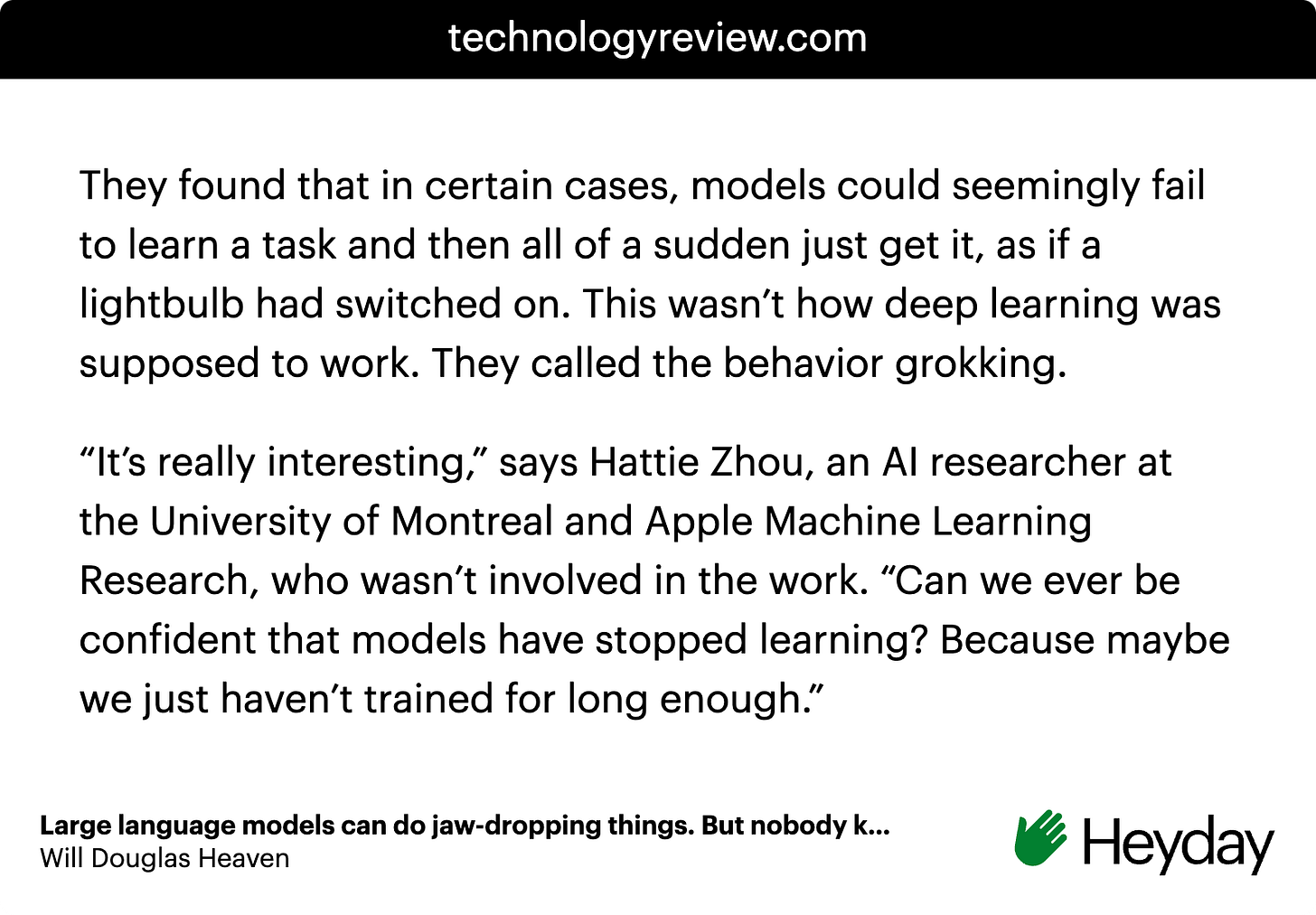What spreadsheets can tell us about AI's future
Plus links on vertical integration, forgetting, and grokking.
We’re back with another edition of Machine Learnings, brought to you by the folks at Heyday.
Heyday is an AI copilot that transforms your documents, notes, and conversations into quotes, shareable content, and a queryable database.
We went to a few AI events this week.
The standout — Replit demoing their Figma design-to-code plugin. It has us thinking more and more about workflows and this piece from Brad Frost. Consider it as a bonus article this week.
We help coaches and consultants be more attuned to their clients and accelerate discovery of the insights that drive forward their businesses. Too much happens during calls and your reading that you can forget, so we’re there to help you put it all together.
If your work requires you to connect the dots, try Heyday as your thought partner free for the next two weeks. You deserve a helping hand.
What we're reading.
1/ [Listen] The Musk-OpenAI lawsuit is full of questions, but one stands out as – why is Elon using AI research from Microsoft? Well, that and the receipts. Learn more at The New York Times >
2/ One for the business-side — why is it so hard to integrate generative AI? It’s a common situation when dealing with new technology, so what can you do about it. Learn more at Harvard Business Review >
3/ Nvidia runs the world of AI hardware today, but like all major market leaders, there’s a massive target on its back. So what’s next for the economics and vertical integration behind the AI dream? Learn more at The Atlantic >
4/ To lean on Ted Lasso for a moment, it can be helpful for humans to have a mind of a goldfish after an error. But what about machines? Is there something similar that can improve performance? Researchers think so. Learn more at Quanta Magazine >
5/ Looking back to history is a great way to predict the future. Let’s take a look at spreadsheets to help us reason about the next act of AI. Learn more at Tim Harford’s Blog >
6/ When we talk about AI models learning, what do we *actually* mean by grokking? And what’s it mean that we can’t quite pin down how LLMs work? Learn more at MIT Technology Review >
7/ Pair that with a look into Google Gemini and research on AI not aiming to understand how it works, but how it works on our minds. Learn more at The Atlantic >
Heyday is your AI-powered thought partner. Modern professionals rely on Heyday to generate meeting notes, extract insights from research, and draft content that draws from past reading and conversations.




